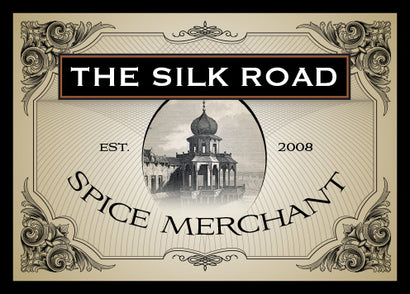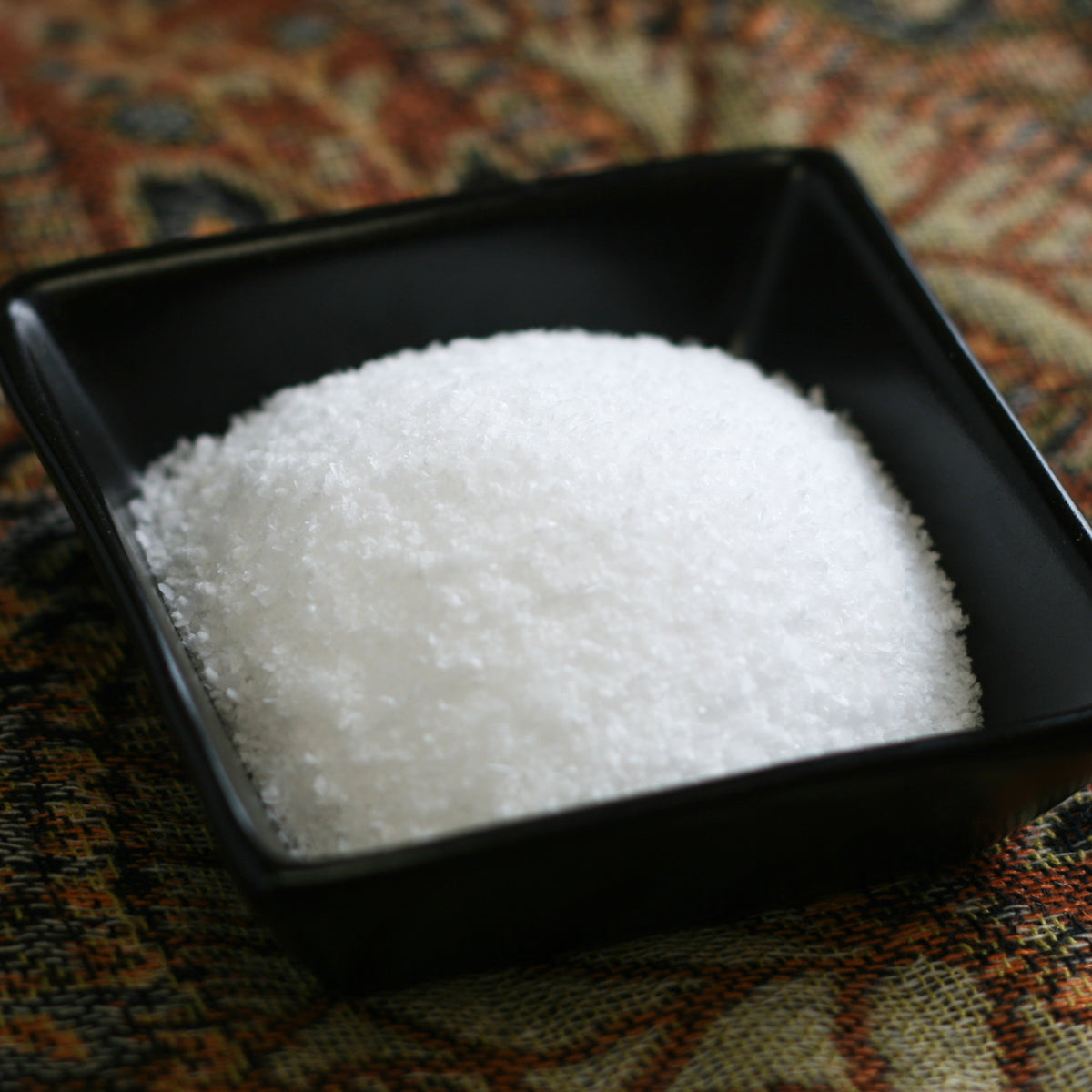Kosher Salt
Kosher salt gets a lot of attention as the preferred salt of many food writers and TV chefs. Kosher salt has large, irregular crystals that are much larger than regular table salt, and usually does not have any additives such as iodine or anti-caking agents. It is nice to use because it can be pinched and added to food by hand, and it does not dissolve rapidly like table salt, so some of its crunchy texture will be preserved on dishes like roasted meat. It’s also perfect for rimming the glass of a margarita.
Kosher salt can be used in place of regular table salt in your cooking, but is not recommended for baking, as there’s usually not enough liquid to dissolve the large particles of salt. Because the granules are larger, you will need to use more kosher salt by volume than you would table salt. Here’s a good way to estimate the difference: if your recipe calls for a teaspoon of regular salt, use a rounded teaspoon of kosher salt instead. If you need to be exact, it’s better to go by weight and not volume.
Some people have asked us if kosher salt needs to be certified to truly be considered kosher. The answer is no. A more appropriate term for kosher salt is “koshering salt” which is what it is called in the United Kingdom. All salt is generally kosher (as it follows Jewish dietary laws), but kosher salt gets its name because its intended purpose is for koshering meat.


